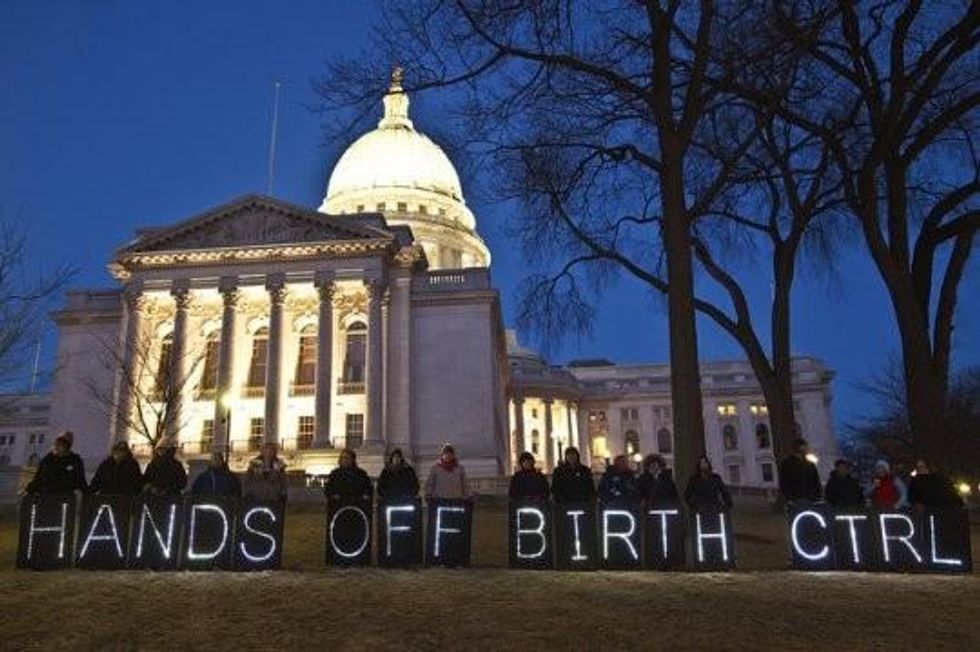The
U.S. Supreme Court on Tuesday is
hearing arguments in what has been called the Hobby Lobby case, which challenges the contraception mandate in the Affordable Care Act.
The mandate, which requires employers' healthcare plans to cover FDA-approved contraceptive methods, exempts houses of worship, but not for-profit corporations.
The challenge to the law comes from two separate, but related cases -- Hobby Lobby Stores, Inc. v. Sebelius and Conestoga Wood Specialties Corp. v. Sebelius. The Root summarizes:
The husband-and-wife owners of the Hobby Lobby chain of craft stores argue in court papers that they do not want their employee health insurance plan to include emergency contraception that could "end human life after conception." That is a reference to the type of contraception known as the morning-after pill.
Conestoga goes further in its pleadings, not wanting to cover contraception that could "take a human life" or "prevent its creation through drugs and intrauterine devices."
The cases also center around the "personhood" of corporations. The Guardian reports:
Central to the case is whether for-profit companies have a right to exercise religious freedom under either the first amendment's free exercise clause or under a federal law, the Religious Freedom Restoration Act. Under the 1993 federal law, the government is prohibited from imposing a substantial burden on religious exercise, unless it demonstrates a compelling interest and employs the "least restrictive means" of furthering that interest.
The lower courts were split on the issue. Hobby Lobby won at the 10th circuit court of appeals, in a ruling that said the firm was a "person" under the RFRA. Conestoga Wood lost at the third circuit court of appeals, because the court said that for-profit secular corporations could not engage in religious exercise under the RFRA. The supreme court agreed to settle the rulings.
A decision siding with the for-profit companies "would set a profoundly dangerous precedent to allow businesses to deny their employees coverage for care and services essential to their reproductive health and long-term well-being on the basis of something as arbitrary as personal beliefs," stated Nancy Northup, president and CEO of the Center for Reproductive Rights.
"Just as it upheld the Affordable Care Act, the U.S. Supreme Court should take this opportunity to both protect the individual rights of employees and preserve the core benefits that this historic law provides for millions of women--benefits that are essential to their health, lives, families, and future," Northup stated.
A Court decision is expected in late June.
Twitter users in support of the mandate are marking the day with the hashtag #NotMyBossBusiness:
________________




